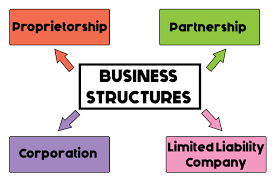Separate Taxable Entities
Only one major business structure is a separate taxable entity. The C corporation is considered a legal “person” created by the state. The IRS treats C corporations as separate taxable entities that pay taxes based on net income each year. Conversely, the IRS taxes the owners of the other major business structures, including S corporations, general and limited partnerships, sole proprietorships and limited liability companies (LLCs), individually at their specific personal tax rates.
Trusts
While trusts are neither individuals nor businesses, when they have income, they are considered taxable entities. Trusts need to file annual tax returns, including exemptions, deductible items and any tax credits for which they qualify. The trustees and beneficiaries, often individuals or groups, are not taxed personally on trust income.
Double Taxation
Corporations, taxed on their net earnings, and their stockholders often face double taxation issues. Corporations pay dividends after tax. Shareholders receiving dividends must include these payments in their personal income at year’s end. Since companies pay dividends out of the current year’s after-tax income and retained earnings and the prior years’ income, the IRS taxes the company and their shareholders twice. Both corporations and their individual shareholders are taxable entities, which provide the legal basis for the double taxation.
Individuals
All US citizens are individual taxable entities. Whether single, married filing jointly, head of household, widow or widower, individuals pay taxes on income earned in the U.S. In many cases, the IRS also has authority to tax U.S. individuals’ income from foreign sources. Even though couples filing jointly involve more than one person, the IRS treats them as one taxable entity. Sole proprietorship net income is also included in the proprietor’s personal taxable income.
Partnerships, S Corporations and LLCs
Strictly defined, partnerships, S corporations and LLCs are not true taxable entities. The organizations are not taxed as specific entities, since their income passes through their books into the hands of the partners, stockholders and members, owners of an LLC. Since sole proprietorship income is included in the proprietors’ personal tax return, sole proprietorships also are not classified as taxable entities.






